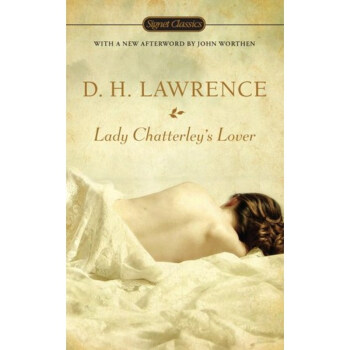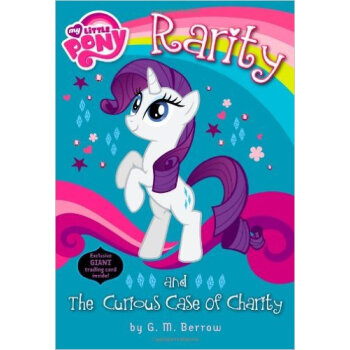![Persuasion 劝导 [平装] [NA--NA]](https://pic.windowsfront.com/19017051/bea36be1-3cd2-4938-9ffe-7b3aa6a98bb8.jpg)

具体描述
编辑推荐
适读人群 :NA--NAAusten is the hot property of the entertainment world with new feature film versions of Persuasion and Sense and Sensibility on the silver screen and Pride and Prejudice hitting the TV airwaves on PBS. Such high visibility will inevitably draw renewed interest in the original source materials. These new Modern Library editions offer quality hardcovers at affordable prices.
Founded in 1906 by J.M. Dent, the Everyman Library has always tried to make the best books ever written available to the greatest number of people at the lowest possible price. Unique editorial features that help Everyman Paperback Classics stand out from the crowd include: a leading scholar or literary critic's introduction to the text, a biography of the author, a chronology of her or his life and times, a historical selection of criticism, and a concise plot summary. All books published since 1993 have also been completely restyled: all type has been reset, to offer a clarity and ease of reading unique among editions of the classics; a vibrant, full-color cover design now complements these great texts with beautiful contemporary works of art. But the best feature must be Everyman's uniquely low price. Each Everyman title offers these extensive materials at a price that competes with the most inexpensive editions on the market-but Everyman Paperbacks have durable binding, quality paper, and the highest editorial and scholarly standards.
内容简介
Jane Austen's last completed novel, Persuasion is a delightful social satire of England's landed gentry and a moving tale of lovers separated by class distinctions. After years apart, unmarried Anne Elliot, the heroine Jane Austen called "almost too good for me," encounters the dashing naval officer others persuaded her to reject, as he now courts the rash and younger Louisa Musgrove. Superbly drawn, these characters and those of Anne's prideful father, Sir Walter, the scheming Mrs. Clay, and the duplicitous William Elliot, heir to Kellynch Hall, become luminously alive—so much so that the poet Tennyson, visiting historic Lyme Regis, where a pivotal scene occurs, exclaimed: "Don't talk to me of the Duke of Monmouth. Show me the exact spot where Louisa Musgrove fell!"Tender, almost grave, Persuasion offers a glimpse into Jane Austen's own heart while it magnificently displays the full maturity of her literary power.
作者简介
Jane Austen was born on December 16, 1775 at Steventon near Basingstoke, the seventh child of the rector of the parish. She lived with her family at Steventon until they moved to Bath when her father retired in 1801. After his death in 1805, she moved around with her mother; in 1809, they settled in Chawton, near Alton, Hampshire. Here she remained, except for a few visits to London, until in May 1817 she moved to Winchester to be near her doctor. There she died on July 18, 1817.As a girl Jane Austen wrote stories, including burlesques of popular romances. Her works were only published after much revision, four novels being published in her lifetime. These are Sense and Sensibility (1811), Pride and Prejudice (1813), Mansfield Park (1814) and Emma (1816). Two other novels, Northanger Abbey and Persuasion, were published posthumously in 1818 with a biographical notice by her brother, Henry Austen, the first formal announcement of her authorship. Persuasion was written in a race against failing health in 1815-16. She also left two earlier compositions, a short epistolary novel, Lady Susan, and an unfinished novel, The Watsons. At the time of her death, she was working on a new novel, Sanditon, a fragmentary draft of which survives.
简·奥斯汀,是英国著名女性小说家,她的作品主要关注乡绅家庭女性的婚姻和生活,以女性特有的细致入微的观察力和活泼风趣的文字真实地描绘了她周围世界的小天地。
精彩书摘
Chapter OneSIR WALTER Elliot, of Kellynch Hall, in Somersetshire, was a man who, for his own amusement, never took up any book but the Baronetage; there he found occupation for an idle hour, and consolation in a distressed one; there his faculties were roused into admiration and respect, by contemplating the limited remnant of the earliest patents; there any unwelcome sensations, arising from domestic affairs, changed naturally into pity and contempt, as he turned over the almost endless creations of the last century-and there, if every other leaf were powerless, he could read his own history with an interest which never failed-this was the page at which the favourite volume always opened:
Walter Elliot, born March 1, 1760, married, July 15, 1784, Elizabeth, daughter of James Stevenson, Esq. of South Park, in the county of Gloucester; by which lady (who died 1800) he has issue Elizabeth, born June 1, 1785; Anne, born August 9, 1787; a still-born son, Nov. 5, 1789; Mary, born Nov. 20, 1791.
Precisely such had the paragraph originally stood from the printer's hands; but Sir Walter had improved it by adding, for the information of himself and his family, these words, after the date of Mary's birth-"married, Dec. 16, 1810, Charles, son and heir of Charles Musgrove, Esq. of Uppercross, in the county of Somerset,"-and by inserting most accurately the day of the month on which he had lost his wife.
Then followed the history and rise of the ancient and respectable family, in the usual terms: how it had been first settled in Cheshire; how mentioned in Dugdale-serving the office of High Sheriff, representing a borough in three successive parliaments, exertions of loyalty, and dignity of baronet, in the first year of Charles II, with all the Marys and Elizabeths they had married; forming altogether two handsome duodecimo pages, and concluding with the arms and motto: "Principal seat, Kellynch Hall, in the county of Somerset," and Sir Walter's hand-writing again in this finale:
"Heir presumptive, William Walter Elliot, Esq., great grandson of the second Sir Walter."
Vanity was the beginning and the end of Sir Walter Elliot's character: vanity of person and of situation. He had been remarkably handsome in his youth; and, at fifty-four, was still a very fine man. Few women could think more of their personal appearance than he did; nor could the valet of any new made lord be more delighted with the place he held in society. He considered the blessing of beauty as inferior only to the blessing of a baronetcy; and the Sir Walter Elliot, who united these gifts, was the constant object of his warmest respect and devotion.
His good looks and his rank had one fair claim on his attachment; since to them he must have owed a wife of very superior character to any thing deserved by his own. Lady Elliot had been an excellent woman, sensible and amiable; whose judgment and conduct, if they might be pardoned the youthful infatuation which made her Lady Elliot, had never required indulgence afterwards.-She had humoured, or softened, or concealed his failings, and promoted his real respectability for seventeen years; and though not the very happiest being in the world herself, had found enough in her duties, her friends, and her children, to attach her to life, and make it no matter of indifference to her when she was called on to quit them.-Three girls, the two eldest sixteen and fourteen, was an awful legacy for a mother to bequeath; an awful charge rather, to confide to the authority and guidance of a conceited, silly father. She had, however, one very intimate friend, a sensible, deserving woman, who had been brought, by strong attachment to herself, to settle close by her, in the village of Kellynch; and on her kindness and advice, Lady Elliot mainly relied for the best help and maintenance of the good principles and instruction which she had been anxiously giving her daughters.
This friend, and Sir Walter, did not marry, whatever might have been anticipated on that head by their acquaintance.-Thirteen years had passed away since Lady Elliot's death, and they were still near neighbours and intimate friends; and one remained a widower, the other a widow.
That Lady Russell, of steady age and character, and extremely well provided for, should have no thought of a second marriage, needs no apology to the public, which is rather apt to be unreasonably discontented when a woman does marry again, than when she does not; but Sir Walter's continuing in singleness requires explanation.-Be it known then, that Sir Walter, like a good father, (having met with one or two private disappointments in very unreasonable applications) prided himself on remaining single for his dear daughter's sake. For one daughter, his eldest, he would really have given up any thing, which he had not been very much tempted to do. Elizabeth had succeeded, at sixteen, to all that was possible, of her mother's rights and consequence; and being very handsome, and very like himself, her influence had always been great, and they had gone on together most happily. His two other children were of very inferior value. Mary had acquired a little artificial importance, by becoming Mrs. Charles Musgrove; but Anne, with an elegance of mind and sweetness of character, which must have placed her high with any people of real understanding, was nobody with either father or sister: her word had no weight; her convenience was always to give way;-she was only Anne.
To Lady Russell, indeed, she was a most dear and highly valued god-daughter, favourite and friend. Lady Russell loved them all; but it was only in Anne that she could fancy the mother to revive again.
A few years before, Anne Elliot had been a very pretty girl, but her bloom had vanished early; and as even in its height, her father had found little to admire in her, (so totally different were her delicate features and mild dark eyes from his own); there could be nothing in them now that she was faded and thin, to excite his esteem. He had never indulged much hope, he had now none, of ever reading her name in any other page of his favourite work. All equality of alliance must rest with Elizabeth; for Mary had merely connected herself with an old country family of respectability and large fortune, and had therefore given all the honour, and received none: Elizabeth would, one day or other, marry suitably.
It sometimes happens, that a woman is handsomer at twenty-nine than she was ten years before; and, generally speaking, if there has been neither ill health nor anxiety, it is a time of life at which scarcely any charm is lost. It was so with Elizabeth; still the same handsome Miss Elliot that she had begun to be thirteen years ago; and Sir Walter might be excused, therefore, in forgetting her age, or, at least, be deemed only half a fool, for thinking himself and Elizabeth as blooming as ever, amidst the wreck of the good looks of every body else; for he could plainly see how old all the rest of his family and acquaintance were growing. Anne haggard, Mary coarse, every face in the neighbourhood worsting; and the rapid increase of the crow's foot about Lady Russell's temples had long been a distress to him.
Elizabeth did not quite equal her father in personal contentment. Thirteen years had seen her mistress of Kellynch Hall, presiding and directing with a self-possession and decision which could never have given the idea of her being younger than she was. For thirteen years had she been doing the honours, and laying down the domestic law at home, and leading the way to the chaise and four, and walking immediately after Lady Russell out of all the drawing-rooms and dining-rooms in the country. Thirteen winters' revolving frosts had seen her opening every ball of credit which a scanty neighbourhood afforded; and thirteen springs shewn their blossoms, as she travelled up to London with her father, for a few weeks' annual enjoyment of the great world. She had the remembrance of all this; she had the consciousness of being nine-and-twenty, to give her some regrets and some apprehensions. She was fully satisfied of being still quite as handsome as ever; but she felt her approach to the years of danger, and would have rejoiced to be certain of being properly solicited by baronet-blood within the next twelvemonth or two. Then might she again take up the book of books with as much enjoyment as in her early youth; but now she liked it not. Always to be presented with the date of her own birth, and see no marriage follow but that of a youngest sister, made the book an evil; and more than once, when her father had left it open on the table near her, had she closed it, with averted eyes, and pushed it away.
She had had a disappointment, moreover, which that book, and especially the history of her own family, must ever present the remembrance of. The heir presumptive, the very William Walter Elliot, Esq. whose rights had been so generously supported by her father, had disappointed her.
She had, while a very young girl, as soon as she had known him to be, in the event of her having no brother, the future baronet, meant to marry him; and her father had always meant that she should. He had not been known to them as a boy, but soon after Lady Elliot's death Sir Walter had sought the acquaintance, and though his overtures had not been met with any warmth, he had persevered in seeking it, making allowance for the modest drawing back of youth; and in one of their spring excursions to London, when Elizabeth was in her first bloom, Mr. Elliot had been forced into the introduction.
He was at that time a very young man, just engaged in the study of the law; and Elizabeth found him extremely agreeable, and every plan in his favour was confirmed. He was invited to Kellynch Hall; he was talked of and expected all the rest of the year; but he never came. The following spring he was seen again in town, found equally agreeable, again encouraged, invited and expected, and again he did not come; and the next tidings were th...
用户评价
阅读《劝导》的过程,对我而言,更像是一场心灵的对话,与安妮·艾略特,与奥斯汀,甚至与我自己。这本书的独特之处在于,它没有刻意去制造戏剧性的冲突,而是将生活的真实面貌,那些细腻的情感纠葛,那些不易察觉的遗憾,都一一呈现出来。安妮的“劝导”,并非是对他人的命令,而是一种在爱与责任之间,在理想与现实之间,艰难权衡后的选择。她那种默默承受,却又从未放弃内心坚持的精神,深深地打动了我。我反复琢磨书中关于“劝导”与“被劝导”的微妙关系,它揭示了人在成长过程中,如何处理外界的意见和内心的声音。这本书的语言风格非常别致,充满了古典的韵味,每一个词语都恰到好处,每一个句子都如同精心打磨的宝石。我特别喜欢作者对人物情感的描绘,那种不动声色的深刻,那种欲言又止的含蓄,都让人回味无穷。它让我看到了,真正成熟的爱情,并非是短暂的激情,而是在时间的洗礼和岁月的沉淀中,愈发醇厚而坚韧。这本书让我开始反思,在自己的人生道路上,是否也曾经因为过度的“劝导”而迷失了方向,是否也曾经因为缺乏“劝导”而错失了良机。
评分说实话,一开始我对《劝导》的期待值并没有太高,以为又是一部类似《傲慢与偏见》的轻松爱情喜剧。然而,当我真正沉浸其中后,才发现这完全是一部截然不同的作品,它以一种更成熟、更具哲学性的视角,探讨了爱情、人生选择以及随之而来的遗憾与成长。安妮·艾略特这个角色,不像很多文学作品中的女主角那样光芒四射,她更多的是一种温和而坚韧的存在。她的“劝导”,并非是强加于人的说教,而是一种基于经验和成熟判断的建议,这种建议在当时的情境下,可能被误解,甚至被忽视,但时间证明了一切。我印象最深刻的是,当她再次遇到温特沃斯上校时,那种复杂的情感涌动,既有旧情的余温,也有岁月带来的疏离和无奈。奥斯汀笔下的爱情,从来都不是一蹴而就的轰轰烈烈,而是细水长流,是在时间的沉淀中,在无数次的擦肩而过和遗憾中,逐渐显露出其真实的模样。这本书的语言充满了古典的韵味,每一个句子都经过精心雕琢,读起来有一种醇厚的美感。我尤其喜欢作者对人物内心世界的刻画,那种委婉而精准的表达,让读者能够深刻地理解角色的动机和情感变化。它让我反思,在人生中,我们是否也曾经因为“明智”的选择而放弃了内心的真正渴望,又是否在多年以后,有机会重新审视那些被我们压抑的情感。
评分《劝导》给我的感受,是那种淡淡的忧伤中蕴含着深刻的哲思,像是一首低沉而优美的古典乐章,在不经意间触动心弦。安妮·艾略特这个角色,她并非是那种耀眼夺目的明星,而更像是生活中那些默默付出的女性,她们用自己的智慧和坚韧,书写着自己的人生篇章。她的“劝导”,更多的是一种内省,一种在经历过情感的波折和现实的困境后,对人生方向的重新校准。我反复咀嚼书中关于“劝导”的含义,它不仅仅是对他人行为的建议,更是对自己内心的一次深刻审视。这本书的语言风格非常有特色,它不像一些现代作品那样直白,而是充满了含蓄和暗示,需要读者细细品味才能体会其中深意。我尤其喜欢作者对人物内心世界的刻画,那种细腻入微的描写,让人仿佛能窥探到角色的灵魂深处。它让我看到了,爱情并非总是轰轰烈烈,有时候,它更像是温水煮茶,在漫长的岁月里,慢慢释放出它最迷人的香气。这本书让我开始思考,在人生的旅途中,我们究竟是在追随别人的“劝导”,还是在倾听自己内心的声音。它让我看到了,成熟并非意味着放弃,而是懂得如何在现实的约束下,依然坚守内心的那份纯真。
评分终于下定决心翻开这本《劝导》,之前对简·奥斯汀的了解仅限于《傲慢与偏见》那种带着一丝少女心的热闹,而《劝导》则完全是另一种沉静而内敛的体验。初读之下,并没有立刻被跌宕起伏的情节抓住,反而像是置身于一片宁静的湖边,细细品味着水波的纹理和岸边的垂柳。安妮·艾略特的内心世界,那种压抑的、隐忍的、却又深埋着不灭的爱意,像是在我心头轻轻拂过。她不像伊丽莎白那样锋芒毕露,她的“劝导”更多的是一种自我和解,一种在现实的压力下,对内心深处真正渴望的坚守。这本书的叙事节奏很慢,每一段对话,每一个眼神,每一次欲言又止,都仿佛被放大镜细致地描摹,这种“慢”反而带来了深刻的思考。我开始去琢磨,在那个年代,女性的婚姻不仅仅是个人情感的选择,更是家族、社会地位和经济利益的综合考量。安妮的“明智”和“劝导”,在我看来,是她对现实残酷性的深刻洞察,也是她对自我灵魂的保护。我尤其喜欢书中对细节的描绘,比如海边的风景,人物的衣着,这些都为整个故事铺陈了一种独特的时代氛围,让人仿佛能感受到海风的咸湿和下午茶的香甜。这种不动声色的深刻,需要读者静下心来,一点点去体会,去感受,而不是急于得到一个明确的答案。
评分《劝导》给我的感觉,与其说是一本小说,不如说是一杯陈年的威士忌,初尝时可能有些微苦,但随着时间的推移,那种醇厚的芳香和回甘会在舌尖久久萦绕。安妮·艾略特这个角色,在我看来,是奥斯汀笔下最具深度和韧性的女性形象之一。她没有年轻时的冲动和任性,取而代之的是一种历经世事后的沉静和智慧。她的“劝导”并非是旁观者的冷眼旁观,而是饱含深情的体谅和理解。我特别欣赏作者对于人物心理的细腻描摹,那些细微的情感波动,那些欲说还休的内心独白,都被刻画得淋漓尽致。这本书让我看到了爱情的另一种可能,一种不以年轻时的激情为代价,而是以共同的经历和时间的考验为基础的深刻联结。温特沃斯上校的出现,给安妮的生活带来了涟漪,也让读者看到了那种在误解和分离之后,仍然坚守的爱。这本书的叙事方式很独特,它不像一些现代小说那样追求快节奏和强情节,而是更注重氛围的营造和人物内心的刻画。我喜欢它那种缓慢而优雅的叙事节奏,仿佛每一次翻页,都能感受到一种时光的沉淀。它让我思考,在人生的关键时刻,我们做出的选择,究竟是出于真正的理智,还是被外界的声音所左右。
评分中文譯本已沒有印象了。
评分价格实惠,比超市卖的便宜多了,质量有保证
评分给孩子买书,给自己捎带本
评分好书。
评分很漂亮,小巧精致的样子。
评分Austen is the hot property of the entertainment world with new feature film versions of Persuasion and Sense and Sensibility on the silver screen and Pride and Prejudice hitting the TV airwaves on PBS. Such high visibility will inevitably draw renewed interest in the original source materials. These new Modern Library editions offer quality hardcovers at affordable prices.
评分很好
评分东西不错,包装完好,物流快捷,十分满意!
评分还可以,丛书中的一本,印刷质量大部分差不多。
相关图书
本站所有内容均为互联网搜索引擎提供的公开搜索信息,本站不存储任何数据与内容,任何内容与数据均与本站无关,如有需要请联系相关搜索引擎包括但不限于百度,google,bing,sogou 等
© 2026 book.coffeedeals.club All Rights Reserved. 静流书站 版权所有

![Old MacDonald Had a Farm 英文原版 [精装] [2-5岁] pdf epub mobi 电子书 下载](https://pic.windowsfront.com/19504181/54698609Nbd5482dd.jpg)







![My Weird School #2: Mr. Klutz Is Nuts! 疯狂学校#2:克拉兹先生疯了! 英文原版 [平装] [6岁及以上] pdf epub mobi 电子书 下载](https://pic.windowsfront.com/19003864/550be533Ne52e7c21.jpg)
![Bravo, Amelia Bedelia! (I Can Read, Level 2)[干得漂亮,阿米莉亚·贝迪利亚!] [平装] [4-8岁] pdf epub mobi 电子书 下载](https://pic.windowsfront.com/19005039/550bf277Nc9a950d1.jpg)
![Library Lion 英文原版 [平装] [4-8 岁] pdf epub mobi 电子书 下载](https://pic.windowsfront.com/19290302/rBEhVVJXwnMIAAAAAACvek2S5hMAAEEUwM8pmAAAK-S175.jpg)
![Me Before You 遇见你之前 英文原版 [精装] pdf epub mobi 电子书 下载](https://pic.windowsfront.com/19359220/rBEhVVJbkEUIAAAAAABUpQQVt_cAAEJxwGzKFcAAFS9805.jpg)



![Flora & Ulysses The Illuminated Adventures [平装] [08--12] pdf epub mobi 电子书 下载](https://pic.windowsfront.com/19677172/5783540cNf59f78fa.jpg)



